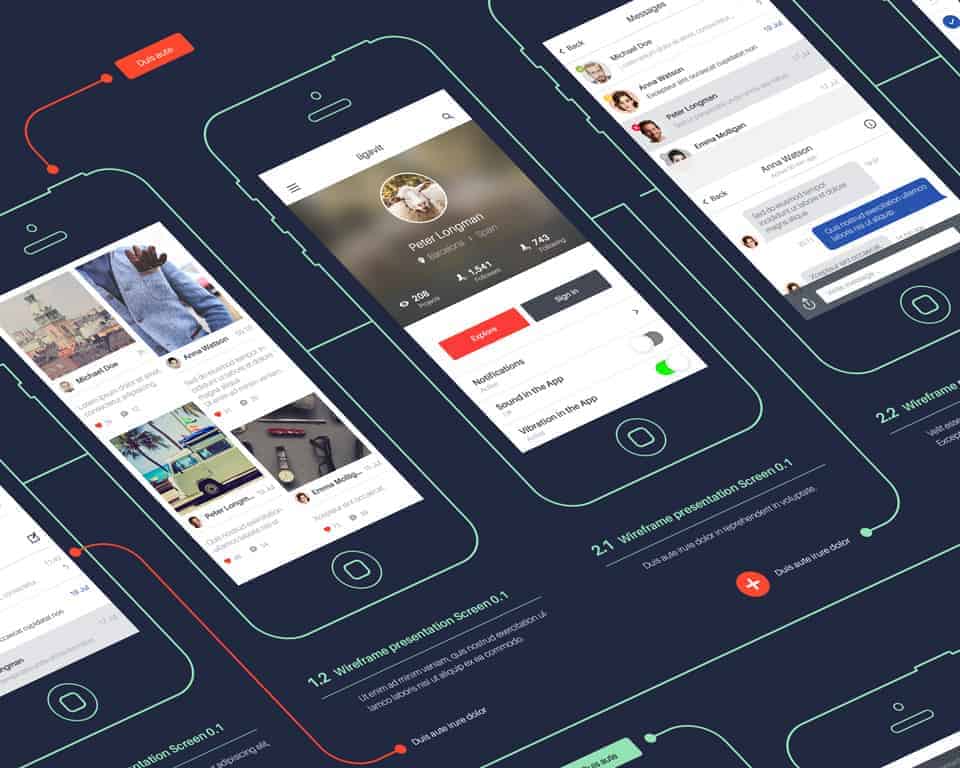Have you never wanted to have an idea that is so obvious, but no one thought of it before you? Ever wanted to start the next Facebook, Apple or Amazin?
How do you do that, though?
The answer is to approach the issue from a different angle than everyone else. There are dominant ideas in every area. We humans have a tendency to think like everyone else in the “crowd”.
On the other hand, the genius thinker, very deliberately challenges these ways of doing things in order to be able to think innovatively.
Albert Szent-Gyorgy, who discovered vitamin C, said,
“Genius is seeing what everyone else sees and thinking what no one else has thought.”
If you can identify a standard point of view and proceed to analyze the situation from a completely different angle, you have an excellent opportunity to gain a completely new insight.
When Jonas Salk was asked how he invented the polio vaccine, he said, “I pictured myself as a virus or a cancer cell and tried to sense what it would be like”.
Ford Motor Corporation once asked Edward de Bono, who invented the concept of “lateral thinking,” for advice regarding how they could clearly differentiate themselves from their many competitors.
De Bono gave them a very innovative idea. Thus far, Ford had seen the problem with his competitors from the standpoint of an automobile manufacturer, and he had asked himself, “How can we make our cars even more attractive for the consumers?”
De Bono attacked the problem from a completely different angle, asking, “How can we make the entire driving experience different for Ford buyers?”
His advice was for Ford to buy parking lots in large cities in the United States, making them available free of charge to Ford drivers.
This idea, however, was a bridge too far for Ford. They didn’t want to enter a completely new industry.
Nevertheless, it does show that by taking a completely different – skewed – approach to a problem, you can get completely new ideas.
 In 1994, the British government held a bidding round for the commercial TV regions in England.
In 1994, the British government held a bidding round for the commercial TV regions in England.
A whole lot of companies were interested in bidding on these regions. They analyzed the demography in the various regions in order to find the wealthiest areas.
They believed that these areas would be able to generate the largest advertising profits.
The result was that most of the bidders were focused on the areas around London and in southeastern England.
Sydney Bernstein was the president of a small chain of movie theaters called Granada Cinemas.
He wanted to get in on the bidding as well, but had less money than many of the other, very large, companies.
For this reason, he told his people,
“Don’t look for the wealthiest regions – that’s where everyone else is bidding. Instead, look at the regions, where it rains the most. That’s where people watch the most TV”.
This turned out to be northeastern England, and they won this region. Although they were a minor company, they still won, simply by looking at the situation differently.
He thought of something no one else had considered.
The spectators at the Olympic Games in Mexico City in 1968 were very surprised at seeing a young athlete jumping the high jump with his back to the bar.
Until then, all high jumpers had been jumping face down. American Dick Fosbury introduced this completely new way of doing the high jump.
Until that time, Fosbury had been number 48 in the world rankings, but in 1968, he won gold with a high jump of a full 2.24 meter with his new technique.
This completely new and never before seen technique was a huge leap in imagination – and it revolutionized high jump. Today all high jumpers use this technique.
He had thought as no one else thought – and found a completely new and much better technique.
How can you get a completely new and different perspective on a situation?
Instead of looking at the problem/situation from your own point of view, instead try to see it from a completely different angle.
If we are talking about a product or a service, seeing things from the point of view of the customer is very logical and most normal.
What about a completely different angle, however?
An angle from which no one else has seen things, and which therefore can provide brand new ideas and answers.
What about seeing things from
- the perspective of the product
• the perspective of the supplier
• the perspective of the competitors
• the perspective of a child
• the perspective of a space alien
• the perspective of a crazy person
• the perspective of a comedian
• the perspective of an architect or designer
• Or how do you think Salvador Dali, Einstein, or Leonardo Da Vinci would have looked at the situation?
Try to challenge all common assumptions and let your imagination run free – without limitations or judgment (initially).
If everyone else is going for the wealthiest region, go for the wettest. If everyone else looks down while jumping, look up.
All the great geniuses didn’t look at the challenges the way everyone else did. They found a completely different perspective and changed the world. Maybe you don’t want to change the world, but rather just do something nobody else does.
Picasso looked at the art of painting completely differently – He saw squares, shapes, patterns – instead of realistic images.
Einstein looked at physics completely differently – and discovered that time and space were relative.
Darwin developed a completely new view of the origin of the species after visiting the Galapagos Islands – a place where nobody else had researched the animal life.
All of them have – somehow – seen the world from a new perspective.
 I once read about an inventor who would hang by his feet when he needed new ideas. It turned everything upside down, and that way he could see things from new angles, and the ideas would well up in him. It can be that simple.
I once read about an inventor who would hang by his feet when he needed new ideas. It turned everything upside down, and that way he could see things from new angles, and the ideas would well up in him. It can be that simple.
Jeff Bezos also viewed the world of bookselling differently, as he drove across the United States. He created Amazon.com, which of course has revolutionized bookselling across the world.
Stelios was looking at air travel a little differently, when he created Easyjet.
SWATCH changed the way we use watches.
IKEA changed the way we buy furniture, and I could go on and on.
If you can approach the problems, the challenges, and the tasks from a completely different angle, you can come up with ideas that other – more conventional – thinkers don’t see.
This gives you unlimited opportunities for innovation, and that’s what we really need in the world right now.








